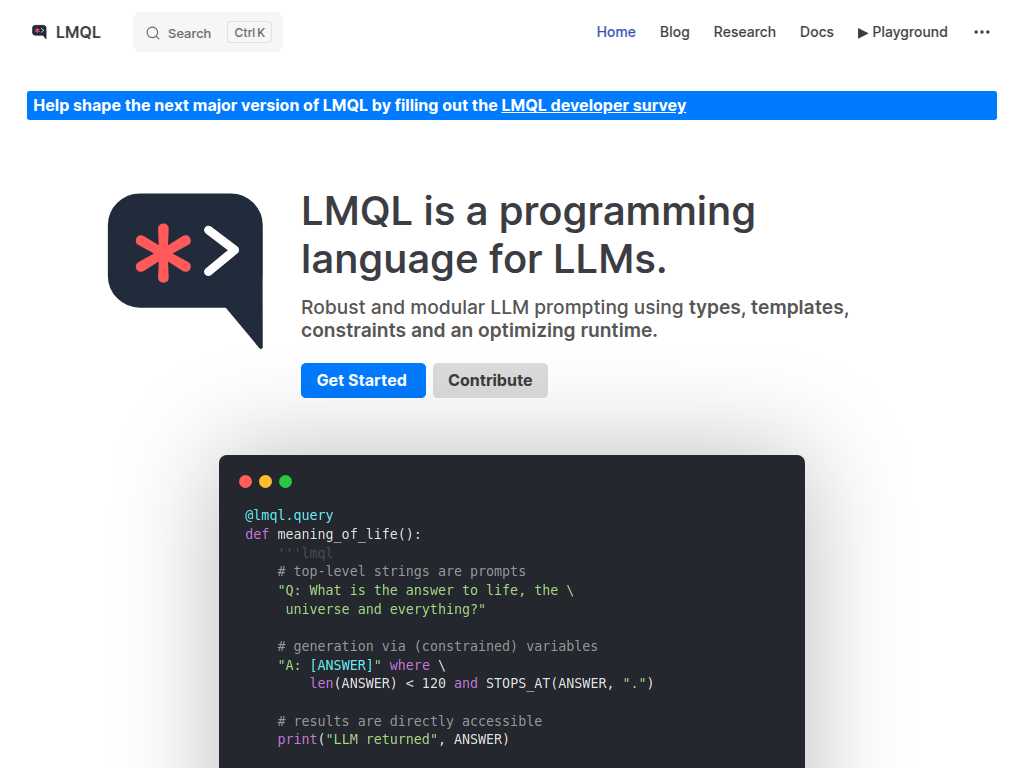LMQL
Other

LMQL: A Programming Language for Large Language Models
Average rated: 0.00/5 with 0 ratings
Favorited 1 times
Rate this tool
About LMQL
LMQL is a groundbreaking programming language specifically designed for large language models (LLMs). Leveraging types, templates, constraints, and an optimizing runtime, LMQL provides robust and modular prompting systems for developers working with LLMs. This innovative approach not only simplifies the process of generating and optimizing prompts but also ensures high accuracy and efficiency, empowering users to harness the full potential of language models for various applications. With LMQL, developers can define precise output formats, enforce logical constraints, and utilize advanced features like nested queries and template-based generation, enabling the creation of sophisticated and reliable LLM-driven solutions. Created by the SRI Lab at ETH Zurich, LMQL is at the forefront of language model research and development, offering powerful tools for both novice and expert users.
Key Features
- Nested Queries
- Scripted Prompting
- Custom Constraints
- Optimizing Runtime
- Playground IDE
- Local Model Support
- Tool Augmentation
- High-level Constraint Management
- Sequential Query Execution
- Integration with Popular Libraries